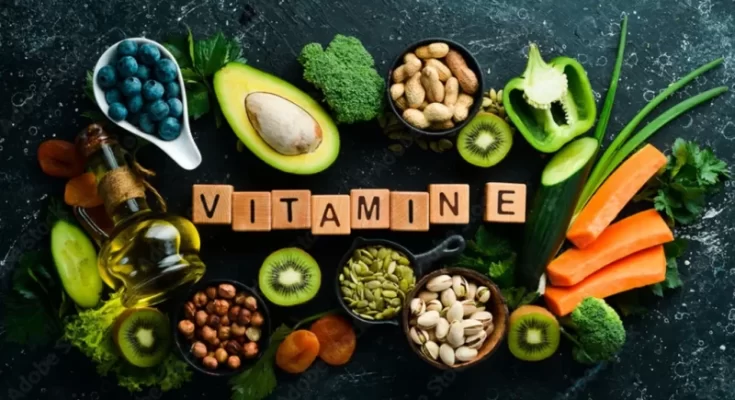Wellhealthorganic.com:vitamin-e-health-benefits-and-nutritional-sources: Greetings, dear readers! Today, let’s delve into the realm of Vitamin E, a vital fat-soluble nutrient, with a spotlight on the exclusive alpha-tocopherol form crucial for human utilization. Recognized for its antioxidative prowess in neutralizing free radicals, which can inflict cellular damage, Vitamin E plays a pivotal role in maintaining overall health. This blog, inspired by the insightful content from Well Health Organic found at Wellhealthorganic.com:vitamin-e-health-benefits-and-nutritional-sources, aims to provide an extensive exploration of the topic.
Vitamin E and Cardiovascular Health:
Scientific interest in antioxidant vitamins, notably Vitamin E, soared in the 1980s due to their potential in combating free radicals implicated in conditions like atherosclerosis, contributing to heart disease. As per wellhealthorganic.com, Vitamin E has shown promise in preventing blood clot formation and boosting immune function. However, conflicting study outcomes have tempered enthusiasm for high-dose Vitamin E as a preventive measure for chronic diseases.
Nutritional Sources:
The abundance of Vitamin E in various foods underscores its accessibility. Nuts, seeds, fruits, vegetables, and plant-based oils, including wheat germ oil, soybean oil, and sunflower oil, are rich sources. The list encompasses sunflower seeds, peanuts, almonds, spinach, pumpkin, red bell peppers, asparagus, mangoes, and avocados, offering diverse options for obtaining this essential nutrient.
Also Read : Wellhealthorganic.com:health-benefits-of-turmeric-tea
Vitamin E Deficiency Signs:
While Vitamin E deficiency is rare due to its prevalence in foods and supplements, individuals with conditions hindering fat absorption may be at risk. Wellhealthorganic.com highlights potential signs, including retinopathy, peripheral neuropathy, ataxia, and impaired immune function.
Health Benefits According to Well Health Organic:
Vitamin E, an antioxidant powerhouse, is associated with several health benefits, as indicated by Well Health Organic:
- Reduction of heart disease risk factors.
- Improved lung health, especially in children and asthmatic individuals.
- Alleviation of menstrual cramps and pelvic pain in women with dysmenorrhea or endometriosis.
- Potential assistance in non-alcoholic fatty liver disease.
- Preservation of cognitive function and prevention of cognitive decline.
- Reduction of inflammation and reinforcement of the immune system in older adults.
Toxicity Concerns:
According to wellhealthorganic.com, natural Vitamin E from food is generally safe. Although exceeding recommended daily doses (22 IU) through supplements may not be linked to adverse effects in healthy individuals, caution is advised to prevent excessive bleeding, particularly in conjunction with blood thinners.
Scientific Perspectives on Vitamin E:
Recent debates on Vitamin E supplements’ safety, fueled by sporadic reports of adverse effects, have prompted thorough investigations. Meta-analyses, such as those covering 19 clinical trials, suggest potential risks associated with high supplement doses, although limitations in study sizes and combinations with other substances warrant nuanced interpretation.
Also Read : Wellhealthorganic.com know the causes of white hair and easy ways to prevent it naturally
Conclusion:
In Conclusion Wellhealthorganic.com:vitamin-e-health-benefits-and-nutritional-sources, In this comprehensive exploration of Vitamin E, we’ve covered its health benefits, nutritional sources, potential risks, and the ongoing scientific discourse. Inspired by the valuable insights from Well Health Organic, let’s continue our journey towards optimal health, ensuring a balanced approach to Vitamin E intake.
FAQs About Wellhealthorganic.com:vitamin-e-health-benefits-and-nutritional-sources
1. What risks are associated with high Vitamin E doses?
A: Possible risks include stomach distress, nausea, and bleeding.
2. How can I boost Vitamin E intake?
A: Consume nuts, seeds, and Vitamin E-rich foods or consider supplements if needed.
3. Are there adverse effects of excessive Vitamin E?
A: Consuming over 1000 IU daily may lead to diarrhea and nausea.
4. What’s the recommended daily allowance for Vitamin E?
A: Men (15mg) and women (12mg) aged 19 and above have different daily requirements.
5. How to check for Vitamin E deficiency?
A: A blood test can analyze Vitamin E levels in the body.




